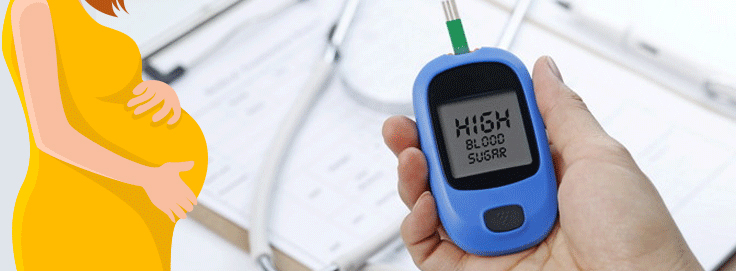

Diabetes mellitus is a chronic metabolic disorder due to either insulin deficiency (relative or absolute) or due to peripheral tissue resistance (decreased sensitivity) to the action of insulin.
Pathophysiology involved: -
1) Decreased sensitivity of skeletal muscles and liver to insulin (insulin resistance) and
2) Inadequate secretion of insulin (beta cell dysfunction).
- The defect lies both in insulin secretion and action.
- The ultimate effect is the Hyperglycemia. Two types are generally described: -
# Type 1(IDDM): - is characterized by young age onset (Juvenile) and absolute insulinopenia. They have genetic predisposition with presence of autoantibodies.
# Type 2(NIDDM): - it is characterized by late age onset, overweight woman and peripheral tissue (skeletal muscle, liver) insulin resistance (hyper insulinaemia). Genetic predisposition is also observed.
Alteration in Lipid metabolism in Diabetes: - Decrease in HDL cholesterol is observed specially with type 1 diabetes. HDL acts as a plasma antioxidant. Fall in HDL may be a cause for congenital malformations as oxidative stress is a potential factor. Increased free fatty acids have been associated with fetal over growth.
About 1-14 per cent of all pregnancies are complicated by diabetes mellitus and 90 percent of them are gestational diabetes mellitus (GDM). Nearly 50 percent of women with GDM will become Overt diabetes (type 2) over a period of 5 to 20 years.
GLYCOSURIA IN PREGNANCY: - During pregnancy, renal threshold is diminished due to the combined effect of increased glomerular filtration and impaired tubular reabsorption of glucose. It is present most commonly in mild pregnancy. If glucose tolerance test is done, glucose leaks out in urine even though the blood sugar level is well below 180mg per 100ml (normal renal threshold). No treatment is required and the condition disappears after delivery.
SIGNIFICANCE: - Glycosuria is specifically detected by testing a second fasting morning specimen of urine, collected a little later, after discarding the overnight urine. Fasting glycosuria if present, is ominous. Glycosuria on one occasion before 20th week and on two or more occasions, thereafter, is an indication for glucose tolerance test.
-Glycosuria occurring any time during pregnancy with a positive family history of Diabetes or past history of having a baby weighing 4 kg or more should be similarly investigated.
HOMOEOPATHIC MEDICINES FOR MANAGING GLYCOSURIA IN PREGNANCY: -
1) Abroma Augusta:- this homoeopathic remedy is best for diabetics who have weak muscles, increased appetites and frequent urination.
2) Phosphorus:- if symptoms include weak vision, vomiting of water as soon as it gets warm in stomach, Regurgitation of ingesta in mouthfuls, Phosphorus can be the best remedy.
3) Syzygium jambolanum:- this is one of the best homoeopathic remedies for Diabetes mellitus. It acts efficiently and promptly in lowering sugar levels during pregnancy.
4) Phosphoric acid:- If the pregnant lady is experiencing exhaustion, weakness, all the time , either mentally or physically, then Phosphoric acid is beneficial. Weak memory, forgetfulness and numb feet and the symptoms prevailing during glycosuria in pregnancy can be effectively managed by this remedy.